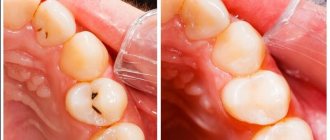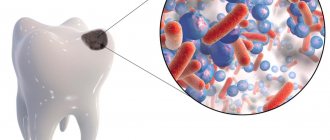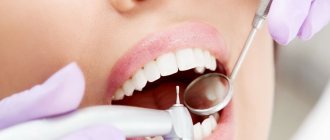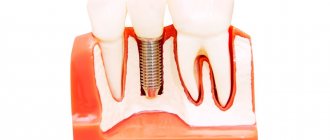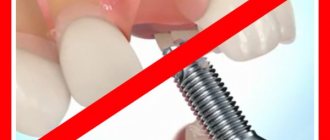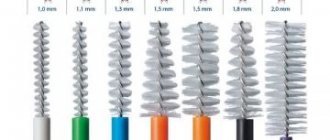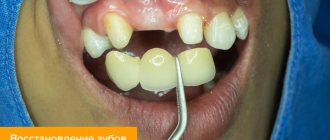"Eating" calcium
To break down and digest simple carbohydrates, the body requires B vitamins and calcium. Teeth become a source for instant receipt of macronutrients. It is these resources that the body spends first.
If a person’s diet is depleted in vitamins and calcium, or the eater is overly fond of sweets, then the wasted reserves of necessary substances simply do not have time to be restored. Tooth decay begins from the inside. The enamel becomes thinner and caries appears.
Roasted seeds and nuts
Fresh nuts and seeds can even be healthy, but when heated, most of the valuable substances are destroyed. Instead of vitamins, fatty acids, amino acids, harmful substances are formed. Particles of seeds and nuts can get stuck in the spaces between teeth, under the edge of the gums. If a person often gnaws on seeds, he injures and wears out the enamel on his teeth. Crunching hard nuts cannot be called useful either. If you cannot do without such snacks, it is better to cook them yourself, frying them so that they remain raw inside.
Nutrient medium for fucking bacteria
Bacteria always live in the oral cavity, even if you brush your teeth regularly. They practically do not react to meat products, most vegetables, fish, and bread. Such products are neutral for the condition of teeth.
What happens when simple carbohydrates enter the body and why do teeth react to sweets? Simple carbohydrates react with bacteria and form organic acid in the mouth. The latter has an extremely negative effect on the outer surface of the teeth. The enamel, becoming thinner, begins to deteriorate, and caries appears.
Human saliva contains special substances that can neutralize harmful organic acids. But if sweets enter the oral cavity in large quantities and with enviable regularity, then the body is not able to provide complete protection of the enamel.
Medicines and alcohol
Some medications and all alcoholic drinks disrupt the water balance and cause dry mouth. The secretion of saliva decreases, it stops constantly washing the teeth, cleaning them and saturating the enamel with minerals. Dry mouth makes the gums vulnerable to injury and inflammation, which can lead to periodontal disease. Sweet alcoholic drinks are especially harmful: liqueurs, wines. Adding to the dryness when consuming them is the effect of sugar and acids. Red wine additionally stains the enamel.
Rules for proper consumption of sweets
To make sweets less harmful to your teeth, doctors recommend adhering to the following rules.
- The right treats . Dentists advise using soft foods, but not sticky ones. For example, instead of sticky candies, marshmallows, and marshmallows, it is better to prefer cream cakes. Such food will not stick to the enamel and can easily be removed after a couple of sips of tea or juice.
- Sweets after meals . This rule is instilled from childhood. After all, by eating a treat, you can “kill” your appetite. This is how parents justify their demand. Dentists explain this rule somewhat differently. During eating (eating soup or porridge), saliva is produced abundantly in the oral cavity. It is in this environment that sweets should be placed so that the organic acid is neutralized as much as possible.
- Diet . If you decide to pamper yourself or your loved ones with a treat, you should not extend the pleasure over the whole day. You need to eat the entire portion at one time. Constant snacking on cookies, sweets, and chocolates leads to regular feeding of bacteria. This process leads to rapid destruction of enamel and the development of caries.
- Maintaining hygiene . From childhood, it is necessary to teach a child to brush his teeth and take proper care of the oral cavity. To reduce the negative impact of sweets on enamel, you can brush your teeth after eating. If this cannot be done, then chewing gum can easily replace toothpaste and brush.
How sugar harms teeth
When treats enter the body, they, like any food, are digested and absorbed. This process requires calcium as well as B vitamins. Dental tissue is a resource for obtaining calcium. Therefore, when eating dessert, the crowns are gradually destroyed from the inside. The greater the portion of sweets consumed, the greater the harm that sweets cause to teeth. In such a situation, destruction is activated, since the crowns do not have time to be replenished with the necessary element. As a result, caries and other pathologies of the chewing organs appear. Not only refined white cubes are harmful, but also the dishes to which they are added. The greatest harm, as scientists have found, comes from the following sugar-containing products:
- Toffees, toffees, chewing candies, which at the moment of chewing immediately stick to the gums, crowns, and get clogged into the space between the units. All this leads to an increase in their dissolution time. Sugar remains in the mouth for a long time, provoking the rapid development of bacteria that damage the enamel layer.
- Caramel sweets, which contain about 60% white refined sugar. If you often put such sweets in your mouth, it can be compared to eating sugar with spoons. Caramel takes a long time to dissolve, so it feeds bacteria that are destructive to enamel for a long time.
- Lollipops, like caramel, are also harmful. In addition, they have another unpleasant property - hardness. When they hit the crowns, they leave a lot of microcracks on the enamel. Microscopic holes increase the development of caries, and can also negatively affect the strength of crowns, making them vulnerable, chipped, and fragile.
- Coffee and tea with sugar are harmful, it is better to avoid sweet gold in these drinks.
- Don't get carried away with Coca-Cola and other carbonated sweet drinks.
The harm of sweets has been proven not only for the oral cavity, but also for the figure as a whole. With fruits and dried fruits, things are also not so simple. These foods will be beneficial if consumed correctly. After all, dried fruits contain a high concentration of fructose. This natural sugar harms the enamel. Soft raisins and candied fruits stick to teeth, damaging their enamel. Sour citrus fruits contain a lot of fruit acids, so their juices are drunk through straws. Sweets really pose a serious danger to the chewing organs. Their use should be limited. In addition, sugars have a negative effect on blood vessels, skin, bones, cause the release of insulin into the blood, and increase appetite.
If pathological changes appear, do not postpone your visit to the dentist. Treatment of initial caries will be faster than elimination of deep carious cavities. Complete cure of the disease at an early stage is carried out by remineralization of the enamel. This promotes the reconstruction of thinned enamel. With the correct selection of therapy technology, the original state of the enamel can be restored. It is important that the underlying structure of the enamel layer is not damaged. At the end of the treatment, protective varnish is often applied to the crowns.
How to replace unhealthy sweets
Not all treats are harmful to the body. Some of them can bring tangible benefits. Doctors recommend replacing harmful toffees and caramels with the following products:
- Honey . The natural product is rich in both glucose and fructose. But along with them, honey contains many useful substances, amino acids, vitamins, and minerals.
- Nuts . Most varieties of nuts, combined with honey, can become an alternative to any sweets. But unlike confectionery sweets, nuts saturate the body with protein.
- Berries, fruits . Apples and pears can be a useful substitute for sweets. And little sweet tooths will completely forget about caramels when they see a plate of cherries or raspberries in front of them.
- Dairy desserts . Cottage cheese with fruit, natural yogurt with berries can please both adults and children with their sweet taste. At the same time, dairy products saturate the body with vitamins and replenish calcium deficiency.
Before you put another piece of delicacy into your mouth, you need to remember that this “sweet pleasure” will mercilessly hit not only your ideal figure, but also harm your dazzling smile.
Who is to blame - they sorted it out, but what to do?
To summarize the above, sugar harms our body on different levels, sometimes it hides in places where we do not expect to find it.
All we have to do is check product labels for the amount of carbohydrates - now many manufacturers indicate not only the total amount of carbohydrates, but also the percentage of sugar, be interested in the composition of dishes in a restaurant, and do not eat or buy food from establishments with a dubious reputation.
A complete refusal of sugar is hardly possible (and let’s be honest, it’s hardly necessary), but reasonable consumption will allow you to be healthy and stress-resistant, and will also help keep your smile beautiful. To the list of posts
Citrus
Any citrus fruit contains citric acid, which causes calcium to be washed out of the teeth. Because of it, the enamel can become more sensitive. With frequent consumption of sour citrus fruits, areas of irritation and inflammation may appear on the mucous membranes and gums.
To protect your teeth from harmful products, DentoSpas recommends:
- brush your teeth twice a day (in the morning and at night - before bed, after dinner);
- floss after every meal or snack;
- After drinking any harmful drinks, use a mouthwash that does not contain alcohol;
- eat more solid foods, greens, hard vegetables, fruits: chewing them helps clean the surface of the enamel and interdental spaces;
- It is better to drink sweet carbonated and alcoholic drinks through a straw, which will reduce the harmful effects on the enamel.
Any hot and cold foods
They are dangerous due to sudden changes in temperature, which can cause the enamel to crack. Harmful microorganisms accumulate in microcracks. Cracks expand over time, leading to chipping or tooth decay. Hot drinks and foods are additionally dangerous for the mucous membranes. Her regular burns can provoke the appearance of stomatitis. The combination of hot and cold is considered the most dangerous (for example, if a hot meal is washed down with a chilled drink).
The most common symptoms of tooth pain from sweets
Toothache associated with eating sugary foods can be irritating. It occurs due to processes in the internal tissue of the tooth, which can occur for a number of reasons. Common culprits include a cavity, a crack (even a small chip), or a condition called dentin hypersensitivity, among others. The nature and duration of the pain, as well as a dental examination and x-rays, will help your dentist determine the cause of the discomfort and prescribe the best course of action.
Each tooth is covered by a tough outer layer: enamel covers the crown, the visible part of the tooth above the gum; bone tissue (Cementum) covers the roots. Dentin forms the middle layer. This bone-like material encases the soft, innermost part of the tooth, the pulp, which contains blood vessels and nerves. It contains microscopic tubes that extend from its surface via enamel or bone tissue to the inner pulp. Disruption of the enamel or this tissue, affecting the dentin, often results in tooth sensitivity caused by irritation of the nerves in the pulp. It is characterized by sharp pain of short duration that occurs in response to certain factors, including hot and cold foods or drinks, sweet, sour and salty foods, and tapping, touching or drying the teeth.
The main symptoms of sweet sensitivity are:
- It's a dull pain;
- cutting pain;
- tooth pain when inhaling through the mouth (air entering the tooth);
- pain when eating;
- soreness to touch;
- discomfort during routine home cleaning.
If your teeth look healthy in appearance and don’t bother you, then you don’t have to go to the doctor
Not true
This is our mentality: until something hurts, few people go to the doctor. And this applies not only to dentistry. This behavior is partly due to Soviet medicine, which is used to scare everyone. Partly, people simply don’t know where to go, don’t trust the doctor, are afraid to find out something unpleasant, and don’t want to spend money. But, of course, it is better to check regularly. You need to go to the dentist once every six months for hygienic cleaning, during which the doctor will use a special device to remove the plaque that you cannot remove at home and conduct a preventive examination of your teeth and oral cavity. This will allow any possible problems to be noticed and treated at an early stage and thus save money and time. After all, the longer you live with a problem, the longer and more expensive it will be to treat it.
Why do teeth hurt from sweets?
Content:
- Why do teeth hurt from sweets?
- Main reasons
- The most common symptoms of tooth pain from sweets
- How do sweets destroy enamel?
- conclusions
For many people, shopping for food is a weekly tradition, a centerpiece of a holiday gathering, or even a reward after a strenuous workout. Sweets, of course, are not ignored. Birthday cake, cupcakes, or just a candy bar (even if it's low in calories) can have a big impact on your teeth. This sensation can indicate several factors, one of which often leaves people wondering: Am I sensitive to sugar? Take a look at what sensitivity is and some of its symptoms.
Tooth sensitivity is a simple term for hypersensitivity of the root or dentin. Periodontal disease and diseased gums are the two main culprits: when the dentin at the root of a tooth becomes exposed, it loses its protective enamel coating. Unprotected dentin allows food, plaque and acids to penetrate and over-irritate the nerve deep within the tooth itself. This may cause pain. Sensitivity is also determined by other factors. If foods and drinks that are sweet, sour, hot or cold cause discomfort upon contact, then you may also be prone to this. Another symptom is the feeling of breathing in very cold air. This discomfort may come and go. Your enamel is likely damaged and is making you sensitive to sweets and other foods. Fortunately, for those who have a major problem with sugar-containing foods, there are solutions to help you enjoy your favorite foods and avoid discomfort.
While we often hear about sensitive teeth reacting to extreme food temperatures, there are other things that cause this unpleasant sensation. Many people suffer from painful teeth that are sensitive to sugary foods - regardless of the cause, this may indicate a consequence of enamel loss.
